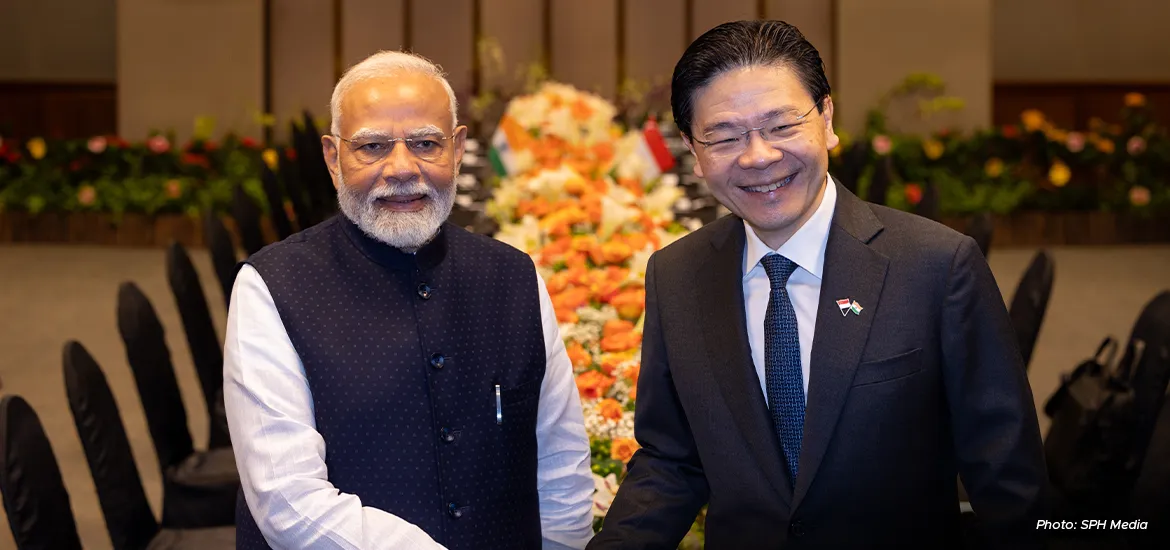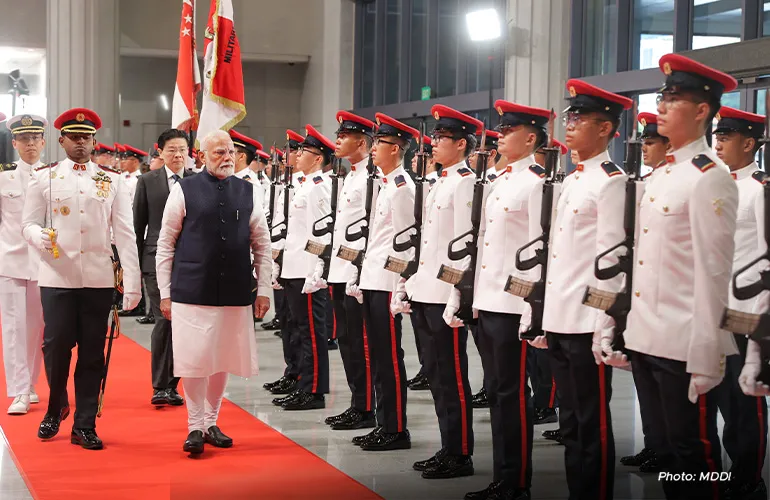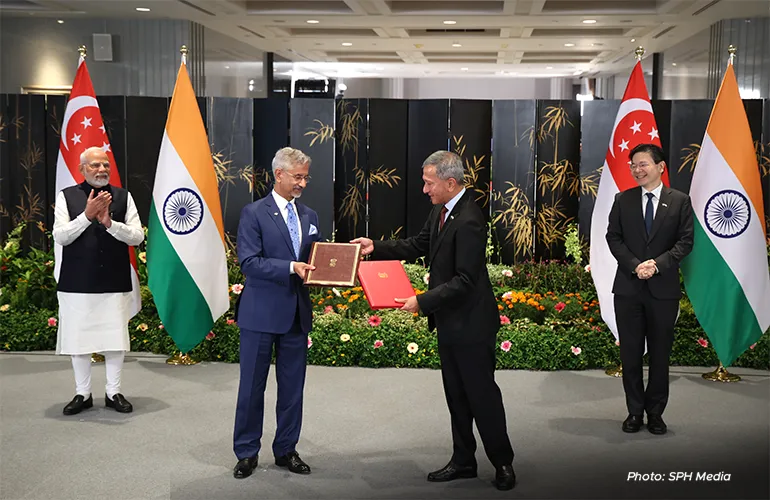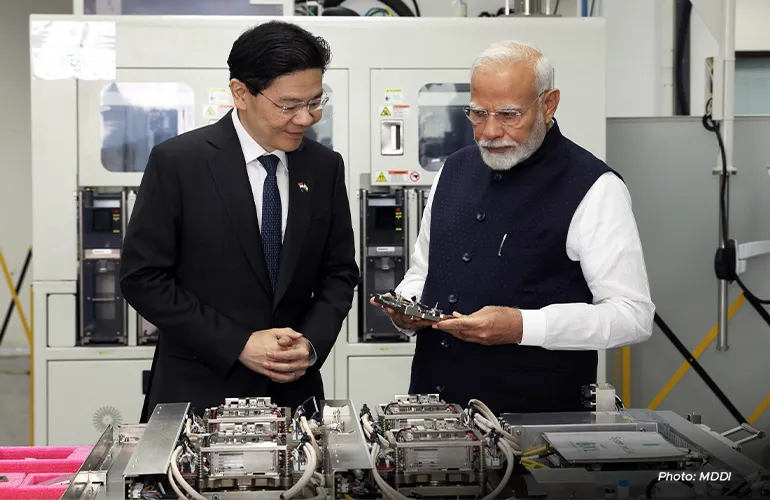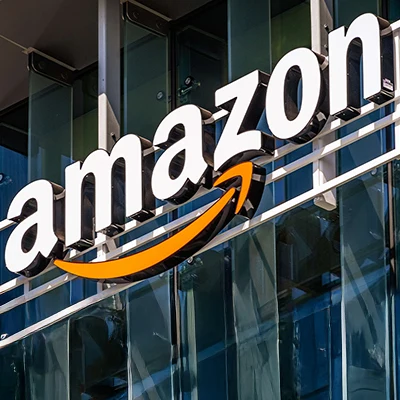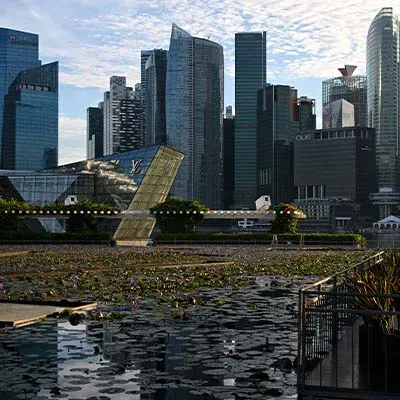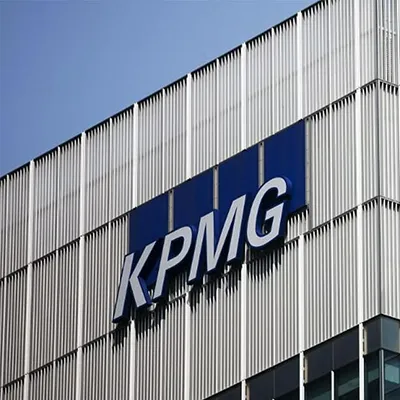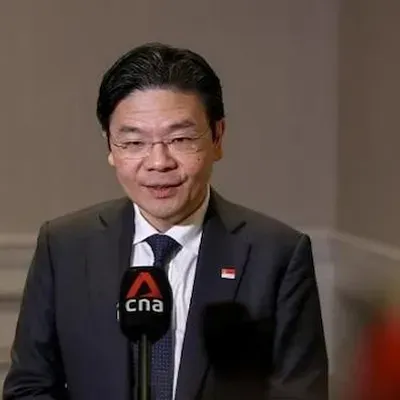Semiconductors
India aims to grow its semiconductor industry and become a global node for semiconductor manufacturing, while players in Singapore’s established ecosystem are looking to enter emerging markets.
The MOU in this area will see both countries support India’s growth plans and facilitate the entry of Singapore companies and supply chains in the Indian market.
It was signed between Singapore’s Ministry of Trade and Industry and India’s Ministry of Electronics and Information Technology.
The partnership includes government-led policy exchanges on ecosystem development, supply chain resilience, and workforce development.
Semiconductors and advanced manufacturing were identified as new areas for bilateral collaboration at the second ISMR dialogue between ministers.
Digital technologies
To encourage greater interoperability between Singapore and India’s digital economies, an agreement was inked for digital technologies.
The deal includes the exchange of knowledge and expertise on digital public infrastructure such as digital IDs, payments, and data exchange.
The MOU was signed between Singapore’s Ministry of Digital Development and Information and India’s Ministry of Electronics and Information Technology.
This builds on existing cooperation efforts such as the real-time payment systems linkage between Singapore’s PayNow and India’s Unified Payments Interface launched in February 2023.
The link allows bank customers in Singapore and India to send and receive funds via their bank accounts and e-wallets instantly across the two countries.
Singapore and India banks and companies also pioneered a fully paperless transaction process involving traders, shippers and banks in August 2023. It showcased the digitalisation of cross-border trade financing documentation using the TradeTrust framework.
Both countries are working to update and renew a 2015 agreement on cyber-security cooperation between the Singapore Cyber Emergency Response Team and India’s Computer Emergency Response Team.
Cooperation in education, healthcare
Technical education, alongside training and skills development, was among the areas of collaboration agreed upon between Singapore’s Ministry of Education and India’s Ministry of Skill Development and Entrepreneurship.
The higher education institutes of both countries will cooperate in areas such as reskilling and upskilling of workforces, student and staff exchanges, and the training of teachers. They will also include student internships and faculty industrial attachments.
On the medical front, an MOU was signed between Singapore’s Ministry of Health and India’s Ministry of Health and Family Welfare.
The two countries will strengthen cooperation in healthcare, medical education, research, and human resources development, including in areas such as disease surveillance, maternal and child health, prevention of communicable and non-communicable diseases, and pandemic preparedness.
The four MOUs were exchanged between India’s Minister of External Affairs S. Jaishankar and Singapore’s Foreign Minister Vivian Balakrishnan.
